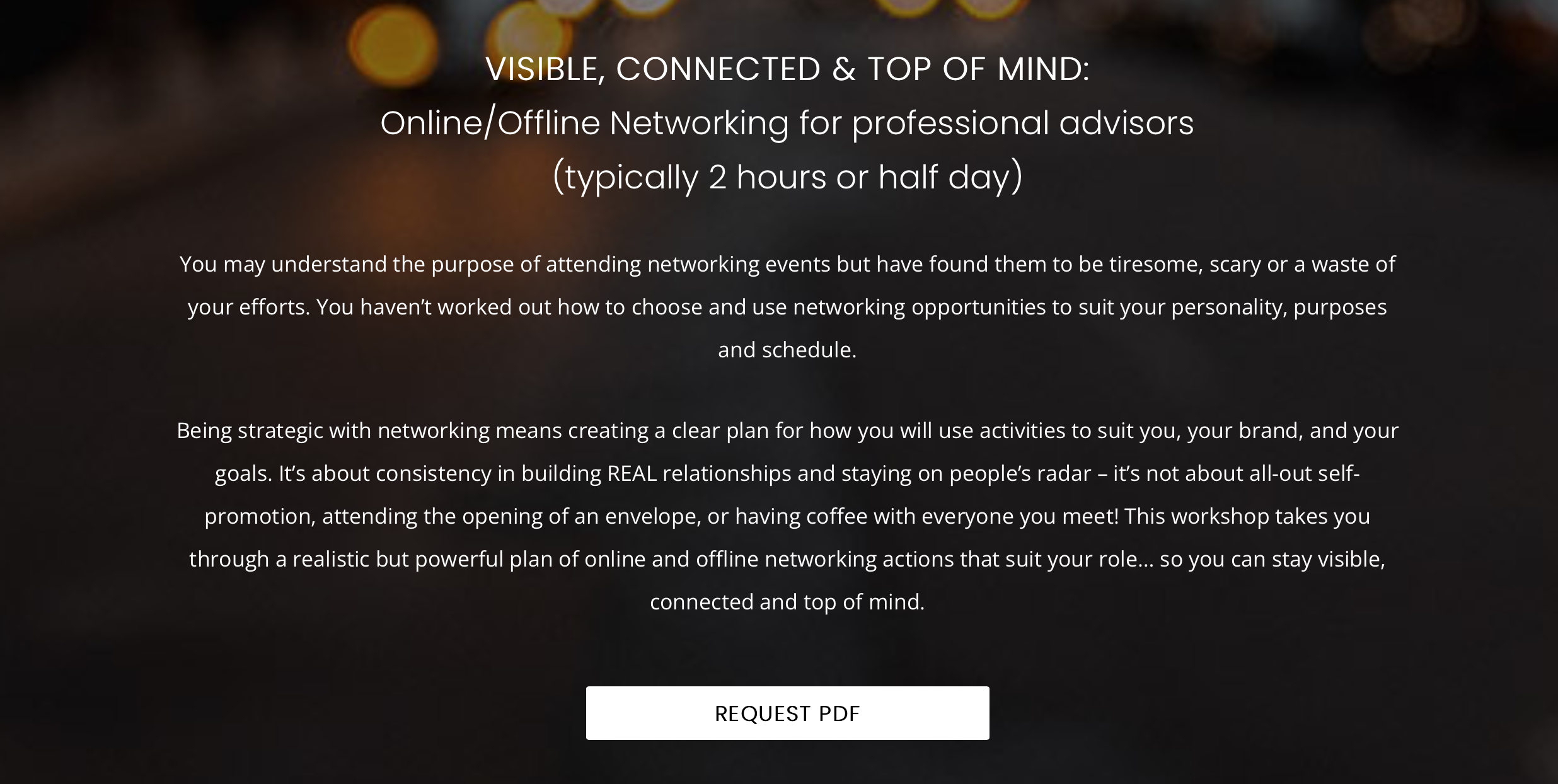Intentional Trust-Building in Business – Part 1 BEFORE
On their web page entitled, Why We Study Trust, Edelman answers this question by stating their belief that ‘Trust is the ultimate currency’. This organisation has proven this point year after year, through the global findings of the Edelman Trust Barometer.
“If people like you they will listen to you, but if they trust you they will do business with you.” – Zig Ziglar
How can we be intentional about building trust in business?
I recently listened to a podcast episode by Cindy Watson, a negotiations expert, on designing your negotiation process to build trust with your business prospect. Unsurprisingly, so much of this was about adequate preparation – and not just in terms of research and formulating great questions – but in taking time to deeply understand yourself, your fears and your motivations, so that you are able to change your mindset and approach your negotiations from a ‘balanced state’.
Cindy also discusses planning the negotiation process carefully and challenges her audience to ask themselves, ‘What are my next steps?’
In this series of articles, I will outline some of the steps that I have used successfully before, during and after the sales conversation to build trust and win great clients. Let’s start with Part 1: what to do before the meeting to start building trust right away.
Intentional Trust-Building in Business Part 1: BEFORE the conversation
There’s plenty to work on before you even approach an exploratory business conversation, to help build trust with new potential clients! Robert Cialdini calls this ‘Pre-Suasion’ (and offers in-depth research findings on subtle actions that make a difference, in his book by the same title).
For me – I like to keep it simple, strategic and transparent. These are the big things to get right before your conversation, in my view:
- Your online presence – are you building trust right from when someone Googles you? (And they will – even if you have been introduced!) Does your website and LinkedIn bio clearly position you in terms of value to a particular audience, and prove your credibility?
- Your first words introducing yourself (e.g. via email or on the phone) – are you keeping it simple and clear, focusing on what you do, for whom, and the results this achieves? Your introduction should be brief because you recognise the other person does not care to read an essay about someone they don’t know… and should be directly relevant to this person, because they need to see why they should stop their day to arrange an appointment with you.
- Your purpose for meeting – have you made it clear, to yourself and your contact, why you are going to have this conversation? What is the intended outcome for each party? I find being transparent and thinking win-win are the keys to booking great meetings.
- Get present before you engage – I 100% agree with Cindy that you need to really know yourself and approach your business conversations from a balanced state. This, to me, means taking time to get grounded, get centred – taking some deep breaths and setting my intention for the energy I want to bring to the meeting – so that I can be truly present with the person, generous with my listening, and calmly confident in my responses.
Stay tuned for Parts 2 and 3 – what I have found to work in building trust during and after the sales conversation, towards embarking on a great working relationship with a new client.

